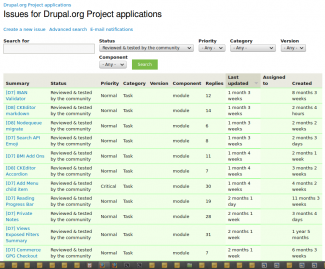When There's Not a Module for That: How to Make (and Maintain) a New Module
You've built sites with Drupal and know that with a few dozen modules (and a ton of configuring), you can do nearly everything in modern Drupal.
But what do you do when there's not a module for that? When the modules that exist don't meet your needs, and cannot be made to by contributing changes?
You make your own.
This blog post accompanies helps you take that step. Making a module is something that anyone can do. Every person developing a module is still learning.

Display lists naturally with the In Other Words module for Drupal
It is common for a Drupal site to list multiple items. It could be several authors of a single article, the days that a recreation center is open, or the flavors an ice cream parlor serves. Clean, structured data is a strong point of Drupal, but the display of that structured content is limited. That is why Agaric, with support from DevCollaborative, made In Other Words, a Drupal module that gives site builders the power to configure precise and natural ways to display lists of items.

How Stewarding the Digital Commons Keeps Your Software Secure, Stable and Innovative
We live amidst a Digital Commons - technology that is built with the principles of freedom and transparency baked into its code and design.
How to Start Contributing Code to Drupal
Practical advice on contributing code to Drupal.

The Door for New Contributors to Drupal is Still Locked
How can people feel good about contributing when the issue queue is so long it can be months before your code is reviewed?

